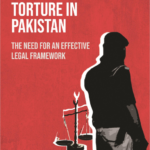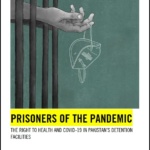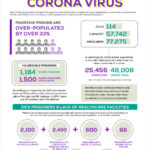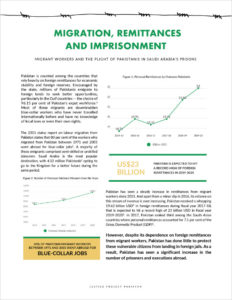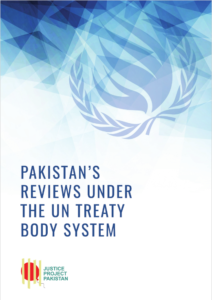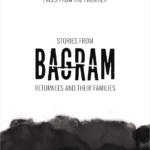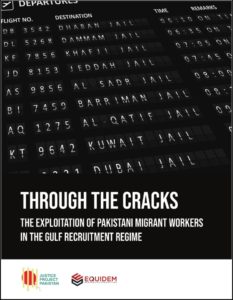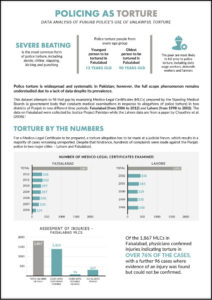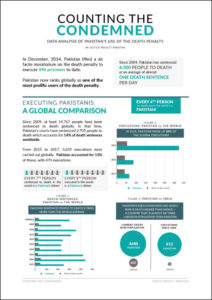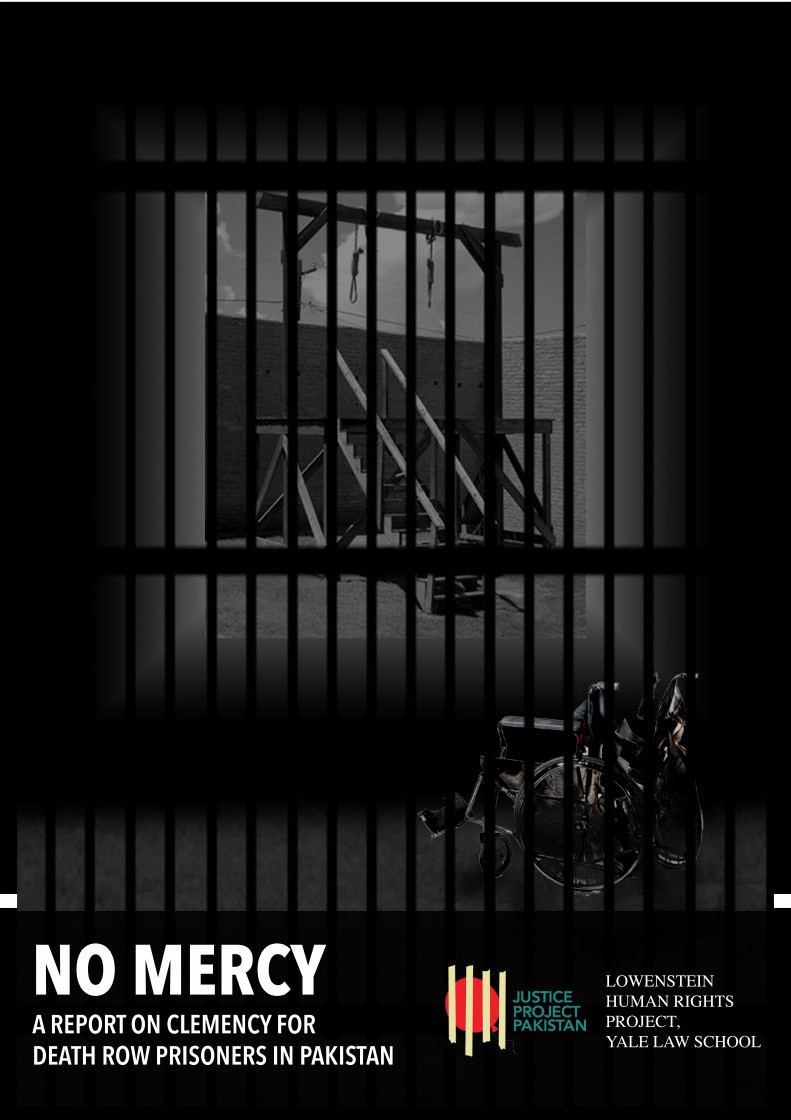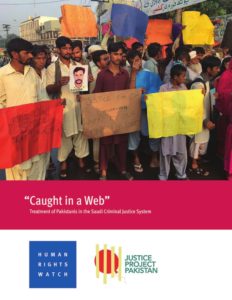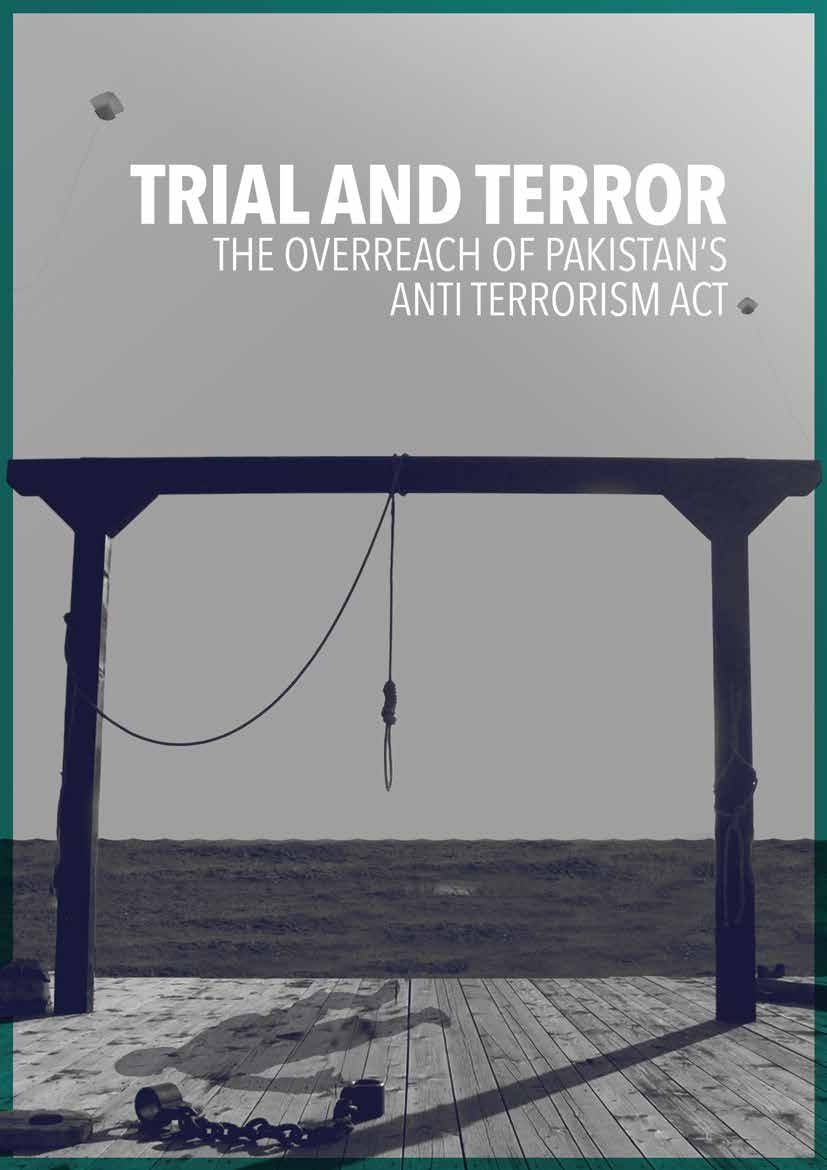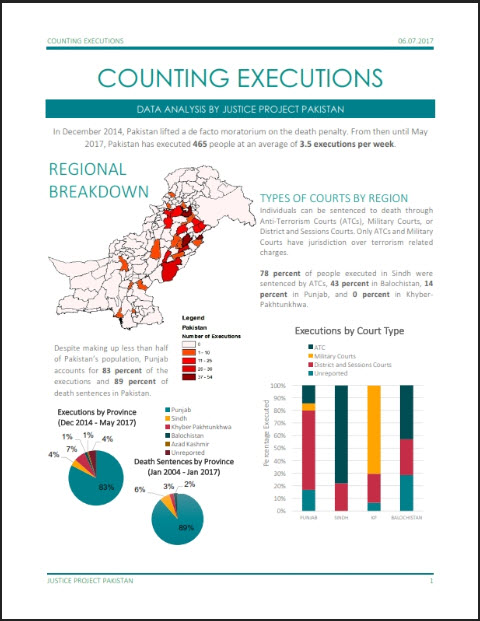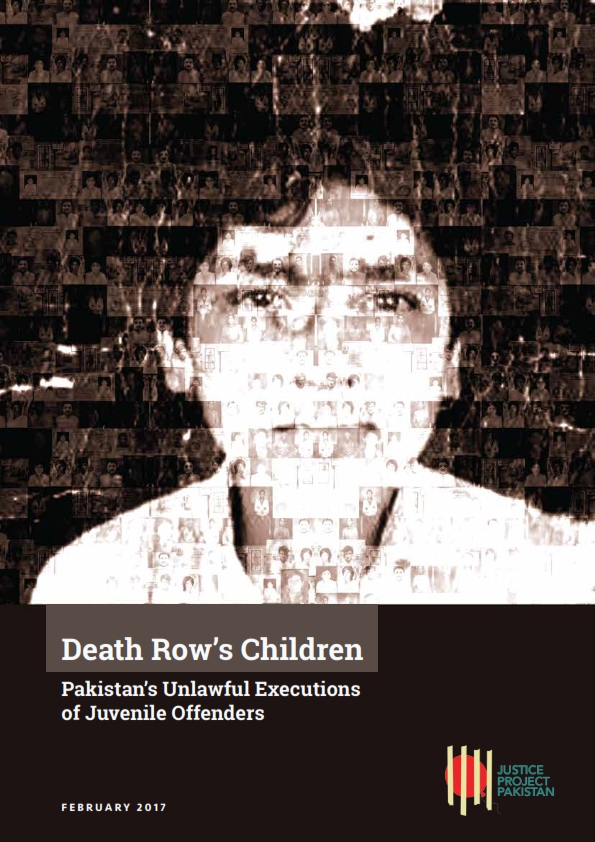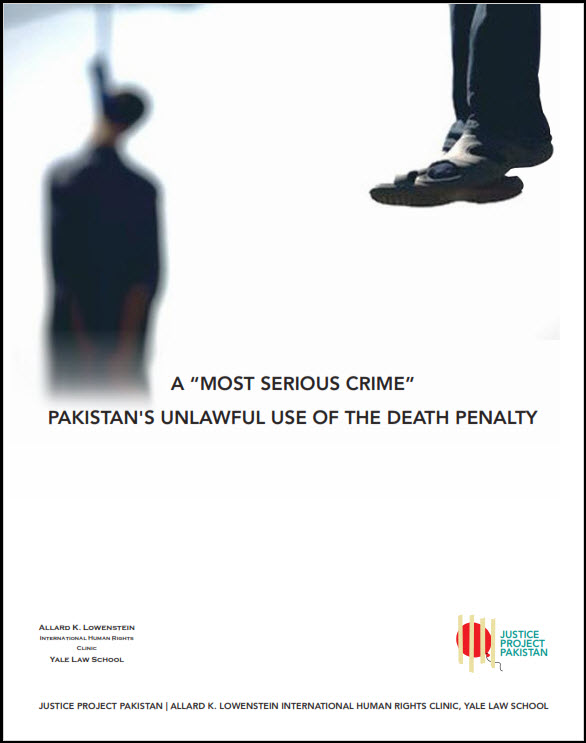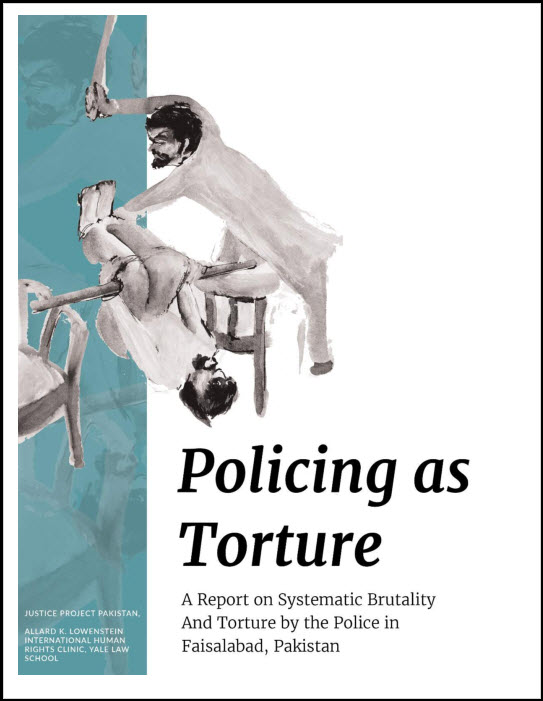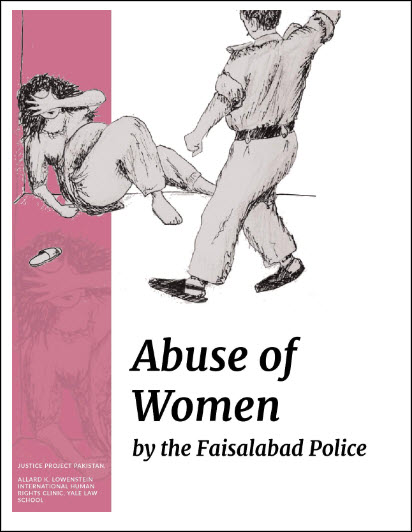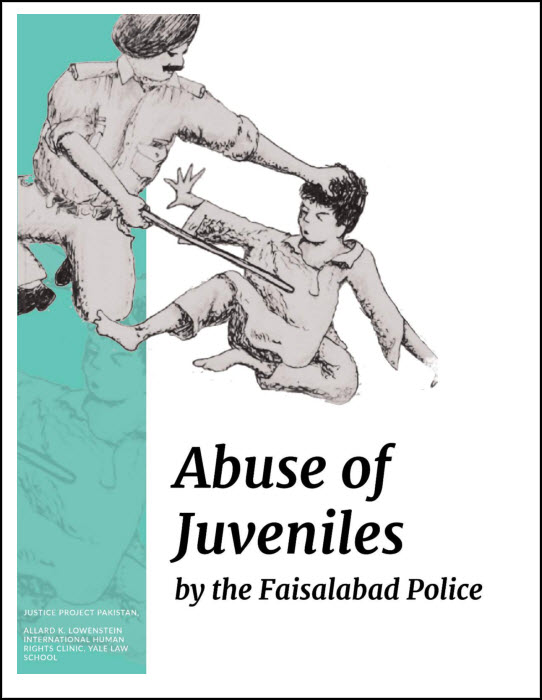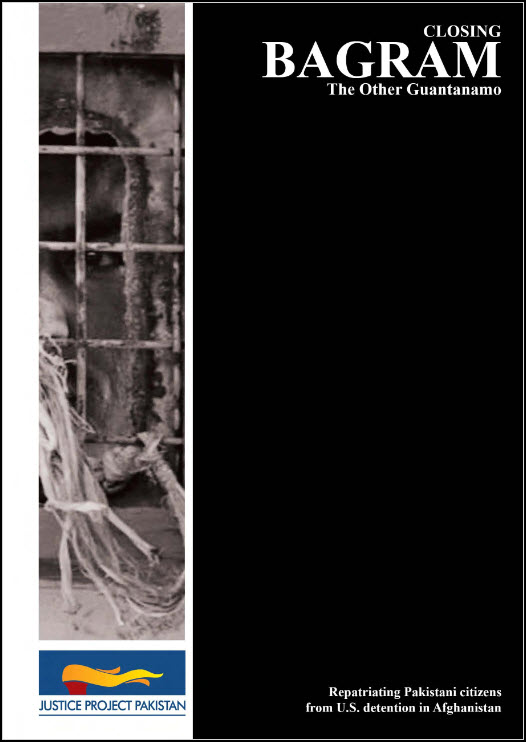Publications
Many inmates come into prison with serious pre-existing mental illnesses. Imprisonment over long periods of time and the extraordinary stresses of the hyper-violent prison experience exacerbates these illnesses, and brings it out in those with no prior history.
Reports
Justice Project Pakistan is committed to thorough research and investigation on all reports it produces. Each of these has been thoughtfully written by a team of experts to give greater insight and deeper knowledge into the subjects on which JPP works.
Date. 03 March, 2025Download Report
Narcotics Offences Factsheet 2025
- The number of individuals incarcerated for narcotics-related offenses has risen sharply by 11.95% within a single year.
- A staggering 83.14% of all prisoners held under the Control of Narcotic Substances Act (CNSA) are currently awaiting trial.
- Punjab reports the highest proportion of narcotics-related cases, representing 56.3% of the total narcotics prisoner population. This is followed by Khyber Pakhtunkhwa (KP) at 22.85% and Sindh at 14.41%.
- 16,399 prisoners are labelled by the prison authorities as “traffickers/peddlers” while 5,137 are labelled “users/addicts”. However, it is unclear how this categorisation is made since the CNSA does not differentiate between the two.
Date. 28 March, 2025Download Report
PAKISTAN’s Drug Policy Journey
Date. 28 February, 2025Download Report
Reimagining Justice: Public Health and Human Rights Centered Drug Policy, High Level consultation – Post Event Report
Date. 28 February, 2025Download Report
Reimagining Justice: Upholding Human Rights Under the CNSA Judicial Training Course Launch and Expert Workshop – Post Event Report
Date. 28 January, 2025Download Report
The Control of Narcotics Substances Act 1997: A Critical Analysis
Date. 28 January, 2025Download Report
Reforming Policing Strategies under the CNSA for Effective Performance
The Control of Narcotic Substances Act, 1997 (CNSA), has long served as the principal legal framework for addressing drug-related offenses in the country. The Act was amended through the Control of Narcotic Substances (Amendment) Act, 2022, which introduced stringent penalties, including life imprisonment and the death penalty, for offenses involving the trafficking of specified narcotic and psychotropic substances, such as heroin, morphine, cocaine, and methamphetamine (ICE), based on prescribed quantities.
Date. 28 January, 2025Download Report
Proportionate Sentencing: A Solution to Prison Overcrowding under the CNSA
Pakistan’s prison system faces a critical challenge, with 21.46% of its total prison population incarcerated under the Control of Narcotic Substances Act (CNSA), contributing to an overcrowding rate of 152.2%. The 2022 Amendment to the CNSA exacerbated this crisis by introducing mandatory minimum sentences, removing parole, probation, and remission for most offenders, and imposing rigid, quantity-based penalties. These measures led to an increasing surge in incarceration rates for drug offences, with an 18.98% increase between 2024 and 2025. Within months of the Amendment, a 12,000-person increase in Punjab’s prison population was observed.
Date. 28 January, 2025Download Report
Harm Reduction and Public Health-Centered Drug Policy
Global drug policies have traditionally focused on punitive approaches, often exacerbating public health crises and marginalizing vulnerable populations. In contrast, harm reduction and public health-centered strategies have emerged as evidence-based alternatives to address drug-related challenges. Grounded in principles of Islam, human rights and health promotion, these approaches align with international commitments under United Nations (UN) frameworks, including the Sustainable Development Goals (SDGs) and human rights conventions. As a national drug policy is a health priority, this policy brief highlights the rationale for adopting harm reduction measures, key international recommendations, and actionable strategies for implementing a public health and human rights centered drug policy in Pakistan.
Date. 28 January, 2025Download Report
Gendered Impact of the CNSA 1997: Structural Vulnerabilities and Paths to Reform
The “war on drugs” has disproportionately affected women, with 35% of female prisoners globally incarcerated for drug-related offences. In Pakistan, the Control of Narcotics Substances Act, 1997 (CNSA) enforces harsh penalties without addressing gender-specific vulnerabilities. Women involved in drug offences often face coercion, poverty, or manipulation and encounter stigma, inadequate legal aid, and gender-insensitive policies.
Key challenges for women prisoners in Pakistan include prolonged pretrial detention, inadequate healthcare, disrupted family roles, and limited rehabilitation programs.
Date. 16 January, 2025Download Report
JPP Prison Data Report 2024
The Prison Data Report 2024, a collaborative effort by the National Commission for Human Rights (NCHR), the National Academy of Prison Administration (NAPA), and Justice Project Pakistan (JPP), provides an in-depth analysis of the state of Pakistan’s prison system. Highlighting critical issues such as overcrowding, under-trial detentions, and systemic inefficiencies, this report is an essential resource for understanding the challenges within our criminal justice system and identifying pathways for reform. By presenting data-driven insights, the report aims to drive meaningful dialogue and action toward a more just and humane penal system.
Date. 18 December, 2024Download Report
Protecting Pakistanis Imprisoned Abroad: High-Level Consultation for International Migrants Day 2024
On 18 December 1990, the United Nations General Assembly adopted a resolution on the International Convention on the Protection of the Rights of All Migrant Workers and Members of Their Families. Each year on 18 December, the United Nations uses International Migrants Day to highlight the contributions made by the roughly 281 million migrants and the challenges they face.
In commemoration of this, on 12 December 2024, the National Commission for Human Rights (NCHR) and Justice Project Pakistan (JPP) organised a high-level consultation for key policy stakeholders. The event aimed to facilitate discussion of the challenges faced by Pakistani migrants and prisoners abroad through two thematic sessions focusing on prevention and protection. These discussions covered the need for safer migration practices and awareness, consular protection mechanisms, and repatriation of overseas Pakistani prisoners, framing strategic recommendations for systemic intervention.
Date.12 December, 2024Download Report
Consular Protection Policy: Protecting the Rights of Pakistanis Imprisoned Abroad
The Government of Pakistan has an obligation, under international law and the Constitution of Pakistan, to protect the fundamental rights of its many citizens detained around the world. According to official estimates, there are 23,506 Pakistanis imprisoned globally. Of these, 74% are in Saudi Arabia and the UAE – 10,432 and 5,292 respectively.
As confirmed in a recent Report of the Special Rapporteur of the Human Rights Council on Extrajudicial, Summary or Arbitrary Executions, the application of the death penalty affects foreign nationals, including migrants, disproportionately
Date.12 December, 2024Download Report
MIGRATION, REMITTANCES AND IMPRISONMENT
Migrant Workers and the Plight of Pakistanis in Saudi Arabia’s Prisons with over 10 million Pakistani migrants worldwide, Pakistan heavily relies on remittances, receiving a record $30 billion in 2024 alone. However, despite this economic dependence, the state has done little to protect its vulnerable migrant workers, many of whom are unskilled laborers in Gulf countries like Saudi Arabia. These migrants face significant risks, including detention without trial, coerced confessions, and lack of legal representation. As a result, the number of Pakistanis imprisoned abroad has risen dramatically, with 10,432 currently in Saudi Arabia alone, and 21 executed in 2024. Urgent reforms, including a uniform consular protection policy and implementation of the Prisoner Transfer Agreements, are essential to safeguard their rights.
Date.10 October, 2024
Death Penalty in Pakistan: Data Mapping Capital Punishment – 2024
As we commemorate the World Day Against the Death Penalty, we present the 3rd edition of the annual statistics report, Death Penalty in Pakistan: Data Mapping Capital Punishment. This report offers a thoroughly updated and comprehensive analysis of the implementation of the death penalty in Pakistan.
Over the past decade, significant developments have shaped the landscape of capital punishment in Pakistan. This report delves into the data and provides an insightful overview of a period marked by a profound re-evaluation of the death penalty. Our aim is to highlight these developments through detailed statistical analysis and contextual insights.
Date. 30 September, 2024Download Report
Training for Malaysian Lawyers on Representing Foreign Nationals Imprisoned in Malaysia
On September 28, 2024, Justice Project Pakistan (JPP) and the Malaysian Centre for Constitutionalism and Human Rights (MCCHR), with support from the Kuala Lumpur Legal Aid Centre (KLLAC), conducted a novel one-day training on providing effective legal representation to foreign nationals imprisoned in Malaysia. Hosted at the KL Bar Auditorium, this inaugural training aimed to identify gaps and enhance outcomes for foreign nationals navigating the Malaysian criminal justice system, while establishing a new benchmark for collaborative efforts in safeguarding their rights.
Date.29 September, 2024Download Report
Primer for lawyers representing foreign prisoners in Malaysia
Like most countries in the world, foreign nationals are disproportionately represented under Malaysia’s criminal justice system. The challenges faced by foreign nationals coming into contact with the criminal justice system are different and often more severe – language barriers, limited family contact, discrimination and bias, degrading treatment, and a lack of understanding of laws and procedures. They may also be subject to immigration procedures – such as deportation. At the same time, foreign nationals are entitled to special rights such as access to consular support and assistance from their respective missions or embassies, access to legal representation, and right to be informed of the charges against them in language they understand. Navigating the criminal justice system in Malaysia, while offering the best possible representation to a foreign national can be particularly challenging for lawyers.
Date.15 July, 2024Download Report
Reimagining Justice: Public Health & Human Rights Centered Drug Policy
From April 23-25, 2024, Justice Project Pakistan organised the conference “Reimagining Justice: The Human Rights Impact of Drug Policy” in Pakistan. This event aimed to initiate a comprehensive national dialogue on drug policy, presenting the United Nations Office of the High Commissioner for Human Rights’ (UN OHCHR) recent report on the human rights challenges associated with addressing and countering the global drug problem.
Date.26 June, 2024Download Report
Gap Analysis Torture and Custodial Death (Prevention and Punishment) Act, 2022
Justice Project Pakistan, in collaboration with the National Commission for Human Rights, presents a comprehensive Gap Analysis of the Torture and Custodial Death (Prevention and Punishment) Act, 2022. This historic legislation marks a significant milestone in Pakistan’s commitment to combatting torture and upholding human dignity. While the Act aligns with the United Nations Convention Against Torture (UNCAT) to a large extent, our detailed analysis identifies critical gaps that must be addressed to ensure full compliance with international standards. The Analysis examines each provision of the Act vis-à-vis international and domestic standards already in place. Explore our findings to understand the urgent need for reform and join us in advocating for stronger protections against torture and custodial deaths.
Date.24 April, 2024Download Report
Protecting the Rights of Foreign Nationals Imprisoned in Pakistan
The Government of Pakistan has an obligation, under international law and the Constitution of Pakistan, to protect the fundamental rights of foreign nationals imprisoned in Pakistan. As of April 2024, there are 1,107 foreign nationals incarcerated across Pakistan’s prisons.[1]
A number of foreign nationals imprisoned in Pakistan lack access to adequate legal representation, translators, and consular assistance from their diplomatic missions, leaving them at the mercy of local courts.These foreign nationals constitute a highly vulnerable segment of Pakistan’s prison population and endure harsher penalties owing to their unfamiliarity with and lack of support in navigating Pakistan’s legal system. They struggle to communicate directly with the courts and are unable to produce evidence from their home countries in their defence.
Date.23 April, 2024Download Report
Narcotics Offences Dataset: Statistical Analysis & Qualitative Overview for Pakistan – 2024
This publication delivers a comprehensive analysis of narcotics offences in Pakistan, encompassing arrest statistics, incarceration demographics, legal amendments, and systemic challenges within the criminal justice system. Understanding the nature and scope of these offences is crucial for effective policy formulation and law enforcement strategies.
Over the past decade, the global prevalence of drug use disorders has surged to 39.5 million individuals, marking a substantial 45% increase. However, drug laws, policies, and drug control & treatment practices often do not take into account the right to the highest attainable standards of health and the need for voluntary access to harm reduction services and drug dependence treatment. Compulsory drug treatment, the lack of harm reduction measures and voluntary treatment including in prisons, over-incarceration and prison overcrowding and its adverse impact on the health of incarcerated persons who are drug dependent and limited access to health care, the use of the death penalty for drug related offences, and their disproportionate impact on vulnerable groups remain key human rights concerns in the global legal and policy framework with regard to addressing issues related to drug control.
Date.30 December, 2023Download Report
FACT SHEET 2023 – Prison Population of Pakistan
This fact sheet is designed to shed light on the present state of Pakistani prisons, addressing critical issues such as overcrowding, prolonged undertrial periods, infrastructure deficiencies, understaffing, inadequate medical facilities, and challenges in appropriately accommodating women and juveniles.
The information presented in this fact sheet is a combination of quantitative and qualitative data, all of which is primary and collected by JPP. Our commitment to continual improvement is reflected in the ongoing enhancements to our data collection and management systems, ensuring a more comprehensive analysis in the future.
Date.30 December, 2023Download Report
Data Dashboards – Prison Population of Pakistan 2023
These Data Dashboards provide a comprehensive overview of the current statistics pertaining to Pakistani prisons, with a particular focus on key variables such as overcrowding, undertrial periods, prison population trends, jail breakdowns, and facilities provided by prison authorities.
The datasets bring to light critical issues within Pakistani prisons, including overcrowding, prolonged under-trial periods, insufficient infrastructure, challenges in housing women and juveniles, and limited access to medical facilities.
Date.10 October, 2023Download Report
Death Penalty in Pakistan: Data Mapping Capital Punishment
On this World Day Against the Death Penalty, October 10, 2023, Justice Project Pakistan (JPP) is proud to launch the second edition of our annual statistics report, “Death Penalty in Pakistan: Data Mapping Capital Punishment.” Building upon the success of our inaugural report released on October 10 last year, this edition represents a significant step forward in our mission to provide vital insights into the state of capital punishment in Pakistan.
Date.16 June, 2023Download Report
The Death Penalty in Law and in Practice in Pakistan
This report is the result of a joint effort between Justice Project Pakistan (JPP), Together Against the Death Penalty (ECPM), and the Anti Death Penalty Asia Network (ADPAN). The report provides comprehensive and up-to-date information on capital punishment in Pakistan, shedding light on the current state of affairs. It offers a detailed analysis of the death penalty recommendations made to Pakistan through four cycles of the Universal Periodic Review (UPR). This analysis serves as a valuable resource for policymakers, human rights advocates, and individuals interested in understanding and addressing the complex issues surrounding the death penalty in the country.
Date.16 June, 2023Download Report
Data Dashboards – Prison Population of Pakistan 2022
Date.16 November, 2022Download Report
FACT SHEET 2022 – Prison Population of Pakistan
The quantitative and qualitative information collected for this fact sheet is primary data, and is collected by JPP itself. We are continuously improving our data collection and management systems in order to have more comprehensive analysis in future.
Date.30 October, 2022Download Report
Conference on International Human Rights Law (Post Conference Report)
Date.10 October, 2022Download Report
Death Penalty in Pakistan
Date.17 March, 2022Download Report
Trapped Inside: Mental Illness & Incarceration
Date.15 March, 2021Download Report
Criminalising Torture in Pakistan: The Need for an Effective Legal Framework
Date.14 December, 2020Download Report
Prisoners of the Pandemic
Date.24 March, 2020Download Report
Pakistani Prisoners’ Vulnerability to COVID-19
Date.17 Feb, 2020Download Report
Migration, Remittances and Imprisonment
The major increase in Pakistani prisoners was reported in the Gulf countries, especially in Saudi Arabia and the United Arab Emirates, where the numbers increased from 1,506 to 3,248 and 1,800 to 2,600, respectively.
Date. November, 2019Download Report
Pakistan’s Reviews under the UN Treaty Body System
United Nation’s human rights treaty bodies are committees of independent experts that monitor implementation of the core international human rights treaties.
Date.25 Sep, 2019Download Report
Faces from the Frontier: Stories from Bagram Returnees and their Families
This report is a follow-up to ‘Closing Bagram: The Other Guantanamo’, a 2015 report that documented the plight of the detainees and their families as they pined for freedom and were eventually released. Nearly five years later, the surviving men continue to struggle with the physical and mental trauma of their harrowing experience.
Date.23 Apr, 2019Download Report
Through the Cracks: The Exploitation of Pakistani Migrant Workers in the Gulf Recruitment Regime
Migrant workers are an important part of Pakistan’s economy and the labour market. Yet the regulation of labour migration in Pakistan remains weak, leaving thousands of mostly male low-wage workers vulnerable to human trafficking, forced labour, ill-treatment in detention overseas and even death. There are close to 11,000 Pakistanis imprisoned in foreign jails, of which over 7,000 are in the Middle East. The Pakistan-Saudi migration corridor, in particular, is considered one of the costliest in the world in terms of recruitment costs for economically disadvantaged workers. Yet individuals and groups who seek to coerce and deceive individuals seeking employment overseas to smuggle prohibited drugs to Saudi Arabia and other Gulf countries, operate with significant impunity.
Date.13 Feb, 2019Download Report
Policing as Torture
Police brutality and torture are widespread and systematic in Pakistan; however, the full scope phenomenon remains understudied due to a lack of data despite its prevalence. This dataset attempts to fill that gap by examining Medico-Legal Certificates (MLCs) prepared by the Standing Medical Boards (a government body that conducts medical examinations in response to allegations of police torture) in two districts of Punjab in two different time periods: Faisalabad (from 2006 to 2012) and Lahore (from 1998 to 2002). The data on Faisalabad were collected by Justice Project Pakistan while the Lahore data are from a paper by Chaudhry Muhammad Aslam.
Date.04 Oct, 2018Download Report
Counting the Condemned
Counting the Condemned contains some shocking revelations. There has been almost a 35 percent reduction in Pakistan’s death row population, but we still account for 26 percent of the world’s death row. Every 8th person executed in the world is a Pakistani. And convictions are often so wrongful, an appellate bench of the Supreme Court has overturned a whopping 85 percent of death sentences since 2014.
Date.11 Apr, 2018Download Report
No Mercy: A Report on Clemency for Death Row Prisoners in Pakistan
IN PAKISTAN, NEARLY 500 EXECUTIONS BUT 0 MERCY PETITIONS GRANTED
- In the last three years, Pakistan has executed almost 500 prisoners
- In that time, the President of Pakistan has granted 0 requests for mercy or clemency including mentally ill and physically disabled prisoners, or prisoners with strong evidence of innocence
- At least 513 mercy petitions have been rejected by the Presidency.
In failing to grant a pardon to even a single death row prisoner, Pakistan’s clemency process appears to have a blanket policy of denying all mercy petitions, new research by JPP and Yale’s Lowenstein Human Rights Project finds.
PAKISTANI MIGRANT WORKERS CAUGHT IN SAUDI CRIMINAL JUSTICE SYSTEM FACE SEVERE LEGAL ABUSE, REPORT FINDS
ISLAMABAD, 5 March, 2018: New research by Justice Project Pakistan and Human Rights Watch finds Pakistani citizens imprisoned in Saudi Arabia are vulnerable to rampant due process violations, including long periods of detention without charge or trial, no access to legal assistance, pressure on detainees from the authorities to sign confessions and accept predetermined prison sentences to avoid prolonged arbitrary detention, and ineffective translation services for defendants.
Date.14 Nov, 2017Download Report
TRIAL AND TERROR: THE OVERREACH OF PAKISTAN’S ANTI TERRORISM ACT
TRIAL AND TERROR: THE OVERREACH OF PAKISTAN’S ANTI TERRORISM ACT attempts to delineate the plethora of flaws and procedural inadequacies in the ATA that have rendered it ineffective in the context of Pakistan’s counter-terrorism efforts. It has been derived from a comprehensive review of 27 cases, as well as interviews of law practitioners and those convicted under the ATA. It is cognizant of the institutional flaws deeply entrenched in the judiciary and law enforcement agen- cies. Ultimately, it delineates the egregious violations of fundamental rights inherent in the summary and unlawful executions of some of Pakistan’s most vulnerable prisoners, whose crimes bear no nexus to terrorism.
Date.06 Jul, 2017Download Report
Counting Executions
In December 2014, Pakistan lifted a de facto moratorium on the death penalty. From then until May 2017, Pakistan has executed 465 people at an average of 3.5 executions per week.
Types of courts by region: Individuals can be sentenced to death through Anti-Terrorism Courts (ATCs). Military Courts, or District and Sessions Courts. Only AYCs and Military Court have jurisdiction over terrorism related charges. 78 percent of perple executed in Sindh were sentenced ty ATCs, 43 percent in Balochistan, 14 percent in Punjab, and 0 percent in Khyber-Pakhtunkhwa.
Date.17 Feb, 2017Download Report
Death Row’s Children: Pakistan’s Unlawful Executions of Juvenile Offenders
On 16 December 2014, the Government of Pakistan lifted a six-year de facto moratorium on the death penalty. Whilst the Government claims that the lifting of the moratorium is designed to curb terrorism, an analysis of the 423 executions that have taken place till February 2017 reveals that the death penalty has disproportionately impacted the most vulnerable of all populations including juvenile offenders. Even though Pakistan’s international obligations and domestic laws prohibit sentencing juvenile offenders to death, at least 6 have been executed in the past two years.
Through this report, the Justice Project Pakistan highlights the fundamental weaknesses under Pakistan’s juvenile justice system that lead to the unlawful and arbitrary implementation of the death penalty against juvenile offenders.
Date.26 Sep, 2016Download Report
“A Most Serious Crime”: Pakistan’s unlawful use of the Death Penalty
On December 17, 2014, Pakistan lifted a seven-year moratorium on the death penalty. Coming in the wake of the tragic terrorist attacks on the Army Public School in Peshawar, the resumption of executions initially applied only to individuals convicted of terrorist offenses. Yet within several months and without public justification, the Interior Ministry lifted the moratorium for all death-eligible crimes. As a result, more than 8,000 individuals are now at risk of execution, many for offenses that are ineligible for capital punishment under international law.
Date.22 Oct, 2015Download Report
Policing as Torture
Police brutality and torture are widespread and systematic in the Faisalabad District of Pakistan. The violence takes many forms. Police beat victims, hang them by their arms or feet for hours on end, force them to witness the torture of others, and strip them naked and parade them in public, damaging their basic human dignity. This conduct amounts to torture. In Pakistan, there has been a lack of documentation that would allow for a rigorous assessment of the prevalence of torture by the police. This report fills that gap.
Date.21 Oct, 2015Download Report
Abuse of women by the Faisalabad police
This report was prepared by Kristine Beckerle, Deborah Francois, and Babur Khwaja, student members of Yale Law School’s Allard K. Lowenstein International Human Rights Clinic. Hope Metcalf, Lecturer in Law, and James Silk, Clinical Professor of Law, supervised the work and edited the report.
Police brutality and torture are widespread in the Faisalabad District of Pakistan. Although most victims are men, the Faisalabad police have also tortured women. Male police officers have sexually assaulted women, ripped their clothes in public, and forced them to witness the torture of their family members.
Date.16 Oct, 2015Download Report
Abuse of juveniles by the Faisalabad police
Police brutality and torture are common features of policing in the Faisalabad District of Pakistan, and children are not exempt from this abuse. Evidence shows that Faisalabad police have arrested—often on the basis of false allegations—those as young as twelve and have used disproportionate force during arrests, engaged in extortion, and relied on torture as a principal means of interrogation. When children and their families complained about the abuse, they were met with silence or retaliation.
Date.16 Oct, 2015Download Report
Closing Bagram
This report was written by Omran Belhadi, Casework Lawyer at Justice Project Pakistan. It was edited by Sarah Belal, Director of Justice Project Pakistan, and Isabel Buchanan, Casework Lawyer at Justice Project Pakistan. Drafting and research assistance was provided by Reema Omer and Sarah Nasrullah.
Justice Project Pakistan would like to thank the ex-detainees and family members of current detainees who shared their pain and spoke with us about their experiences. We are also grateful to the numerous government officials who shared their knowledge and expertise.
Views: 5929






























